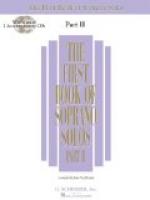The ladies smiled indulgently at the curious way of putting it, but were not yet persuaded in their hearts that so considerable a portion of the love of God could be diverted from their own delightfully engrossing race, not to China alone, but to other peoples also, as would follow by that kind of arithmetic. Let the missionary talk. It would still be as obvious to their consciousness as the glittering pompon on Mrs. Greenman’s bonnet that themselves were the consistent and natural monopolists of the favor of their Creator!
But Mr. Carew went on: “We may find our two very illuminating little words in another text almost equally familiar. It is this: ’Behold the Lamb of God which taketh away the sin of the world.’ This lets us farther into God’s attitude and purpose concerning ‘the world.’ Loving all His creatures, He still saw that they were involved in ruin brought on by sin. If He brought them to Himself—the only event that could satisfy love—it must be by a great and costly Redemption. One emanating from Himself must be projected into the ruin and death of the world and come back to Him, spotless and unsullied, bringing with Him ‘many sons’ unto the glory. But He must purge their sins. So He gave Him to be a Lamb of sacrifice; that He taking the sins of the world upon Him, might work in Himself a death unto sin that should be made good to all that become united to Him. Potentially, then, the sin of ‘the world’ is taken away. If we wish to support further this point in our study concerning ‘the world’ we may turn to Paul and hear, ’God was in Christ, reconciling the world unto Himself, not imputing their trespasses unto them.’ Or the Apostle John will tell us that ’He is the propitiation for our sins; and not for ours only, but also for the sins of the whole world.’
“Now that we have reminded ourselves of the love, and of the gift embracing redemption, it occurs to us to ask how are our poor brothers in China to avail themselves of the gift or to hear of the love. Another well-known test, containing our two words again, tells us very clearly. It offers the only logical answer to the question, and it is this: ’Go ye into all the world and preach the Gospel to every creature.’ Love has devised its gift and prepared it at unspeakable cost, and now commands our feet that we may bear it to all habitable parts of the earth. Wherever the objects of God’s love are, there the gift must be borne. Do we not all see that the work which we call ‘Foreign Missions’ is in the direct, simple carrying out of the purpose of God, bearing the knowledge of the gift to all for whom it is intended, that they may avail themselves of it? What object could be dearer to the heart of God? What He has Himself done shows us of what moment the matter is to Him. How can we ever excuse ourselves that it has been a matter of such indifference to us? He has limited Himself to human instruments for the carrying to the lips of dying ones whom He loves the water from the smitten Rock, and how have we responded? Are we indeed His sons and daughters, that His supreme wish should be our last concern?”




